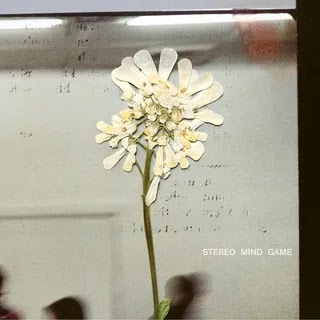Recorded in a Virginia mountain town named Rural Retreat, the debut from this quartet of fringe-folk veterans beautifully articulates the weirdness and magic of life outside of the city.
F-150s and Fox News, Christians and country music, ammunition and American flags: These are defining symbols of modern life in the rural United States, a landscape often assumed to be so stubborn and insular that liberal pundits write it off as a lost cause. That stereotype overlooks not only an incoming tide of militantly progressive country folks but also the sort of longstanding wonder that can emerge from life outside of the city. This is the ever-weird America that fascinated Harry Smith and the Lomax lineage, after all, a place so attuned to the skies and the seasons, and so isolated from trends, that it can produce an esoteric entertainment that feels worlds apart from its city kin. Its so-called “outsider art” transmogrifies life’s joys and impositions into something transcendent.
That practical magic is the lifeblood of Doran, a spectacular new quartet composed of four musicians long situated on the fringes of American folk, all of them singers and multi-instrumentalists with a shared fondness for puppet shows and far-flung folk myths. Doran are a pair of pairs: Channing Showalter and Annie Schermer are known as West of Roan, a group whose sublime and haunted songs speak to time split between North Carolina’s Blue Ridge and Washington’s Cascades. Elizabeth LaPrelle, meanwhile, earned attention with Anna & Elizabeth, a transgressive outfit responsible for one of the most transfixing albums of the past decade. Her husband, Brian Dolphin, is a songwriter and ethnomusicologist steeped in the traditional sounds of the Ukraine and U.S. They channel all this into their self-titled debut.
In the winter of 2019, the two duos rendezvoused in the tiny Virginia mountain town where LaPrelle and Dolphin lived until recently. They entertained themselves in the ways that life in a place named Rural Retreat might suggest—cavorting in fallen leaves, stewing broth for hours, and escaping to an attic to record 13 songs that capture the strange majesty of lives so tied to nature that the occult and the ordinary overlap. Where Bonny Light Horseman subtly reimagined very old songs for now, Doran’s originals deny that the march of time actually exists. Their debut lands like a lost treasure salvaged from the vaults of the Watersons in the ’70s or Devendra Banhart and his Gnomonsong cohort three decades later. Sweet, sad, and often surreal, Doran is content to be out of place, a bounty stolen from the deepest woods.
Doran’s four voices—or, rather, the ineffable ways they intertwine—are Doran’s most immediate and expansive tool. Hymnody and balladry, shape-note songs and madrigals: The quartet’s breadth and skills as singers evoke a rural Roomful of Teeth, retrofitting that ensemble’s sense of the palatial conservatory for a modest cabin. Eerie harmonies cast the enchanting prelude of “Deer People,” an invocation fit for either the fall harvest or the tarot. Individual notes gather and scatter like a small symphony of bells throughout “Old Moon,” the steady melody bejeweled by brilliant vocal flashes. As Showalter sings of silvery nocturnal walks during “Solstice,” the rest of the quartet moves in and out of a round, latching onto syllables or phrases to form a rhythm that resembles a trance. I find myself hoping it will never end, then idly humming to sate that desire.
But Doran does not exist to dazzle. These songs are vivid if elliptical snapshots of love and woe, joy and devastation. They celebrate simple pleasures. Rivers, trails, and winds, for instance, act as little gifts during the measured dulcimer gem “Down the Road.” Set against a plaintive fiddle drone, “Day into Night” is Dolphin’s tender ode to a dying friend, soon to be released from the tedium of doctors and pain. The rest of the band gathers him around in the last chorus, an act of encouragement for the living. And Schermer insists that light cannot function without dark during “The Shadow Walks Behind You,” her spectral thesis on the coexistence of pleasure and despair. “Without them, we are only walking. We cannot really dance,” she says over autoharp strums, coolly imparting a bit of country wisdom.
To that same end, the sounds here set these tunes on edge, with foreboding lurking behind every studied harmony. The sense of eternal mystery written into “Bread and Water” is reinforced by the bowed dulcimer beneath it, steadily howling like the ghost of Tony Conrad. The melody of “And We Are Going” is a fuzzy blanket, but the slackly tuned guitar strings conjure an old barn in winter, wind slipping through the cracks. Bells that clatter at the end enhance that forlorn mood, as though this song lives in the loneliest place in the world.
A few days ago, and not so far from where Doran cut this introduction, I was walking through the woods, listening to these songs as the first hints of winter appeared. My mind was focused on the rippling fiddle of “Bonefolder,” a tune forever suspended between a dance and a dirge, when I looked up and spotted a bobcat only feet away. We stared at one another for a while, waiting for anything to happen. The encounter felt dangerous and thrilling and real, an instant of rural life where the demands of the modern world seemed nonexistent—the exact same sensation, turns out, that Doran delivers for 46 minutes.
















0 comments:
Post a Comment